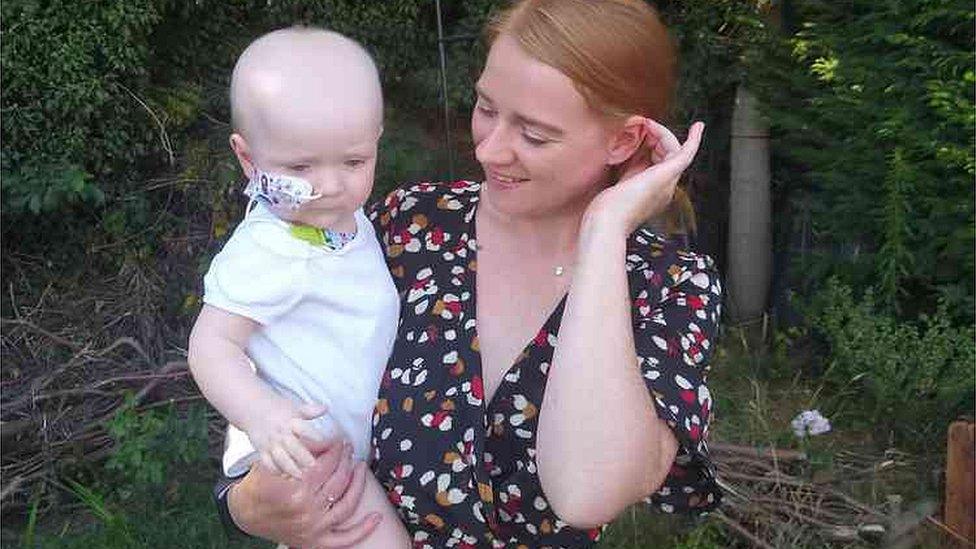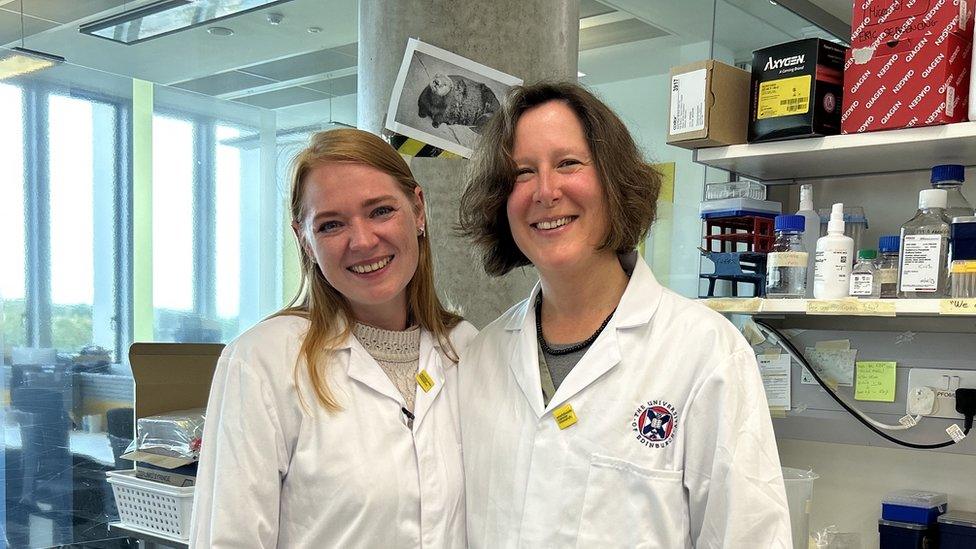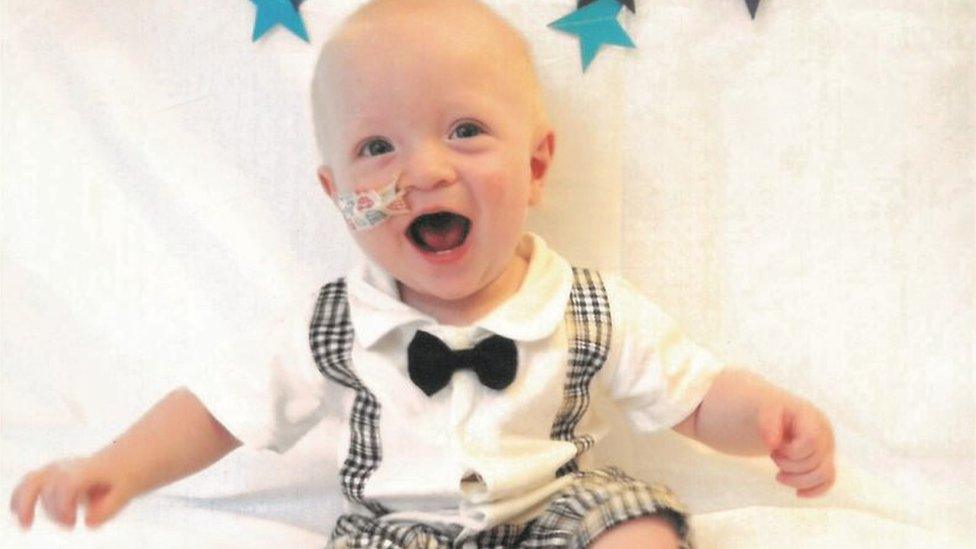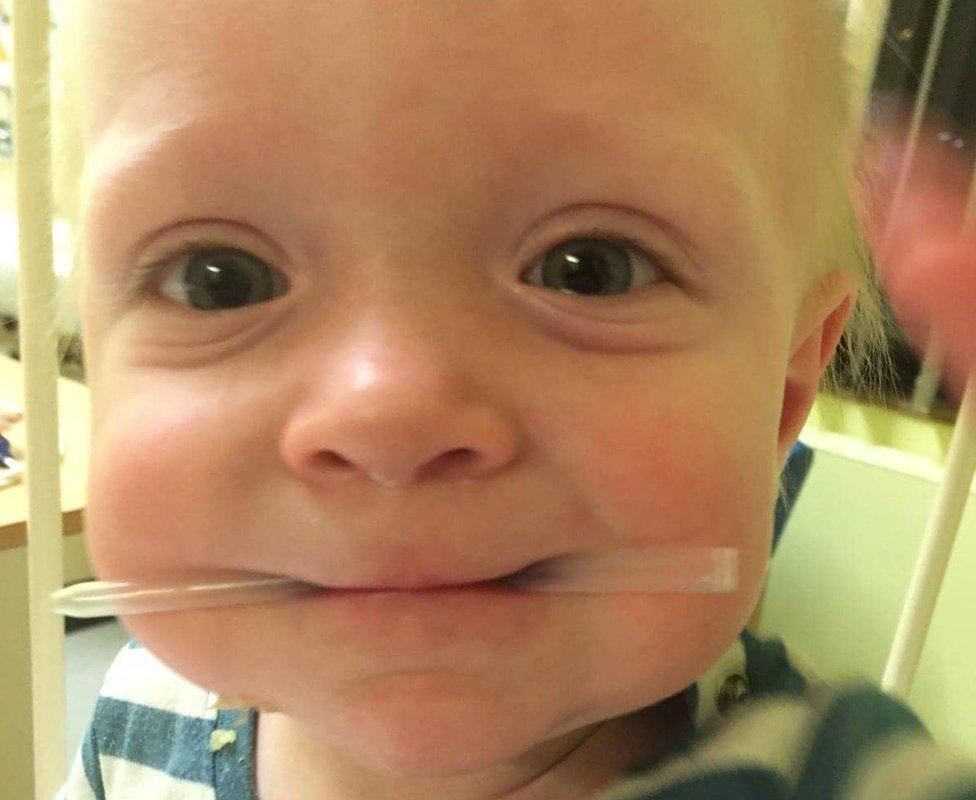Infant leukaemia: Ipswich mother tells of her baby death heartbreak
- Published

Callan Brett, 33, of Ipswich, lost her son Henry to infant acute myeloid leukaemia in May 2021
A mother whose baby son died of a rare form of blood cancer says she hopes new research will spare other families from similar "heartbreak".
Callan Brett, 33, from Ipswich, lost her son Henry to infant acute myeloid leukaemia in May 2021.
Diagnosed at five months old, Henry was just 14 months old when he died.
Mrs Brett says a new research project into infant leukaemia at the University of Edinburgh meant the "the world" to her and her family.
The research, co-funded by Leukaemia UK and Worldwide Cancer Research, aims to uncover kinder and more effective treatments for infant leukaemia - a rare but devastating disease which affects babies under 12 months.

Mrs Brett (left) recently met with Prof Ottersbach to learn more about the project
The project is being led by Prof Katrin Ottersbach at Edinburgh's Centre for Regenerative Medicine.
Prof Ottersbach says: "The treatment of infant leukaemia has not improved for decades.
"This research will allow us to investigate what makes blood cancer in infants unique, and how we can treat it more efficiently."
Mrs Brett says: "I was shell-shocked when we were told that Henry had infant leukaemia.
"The only way I can describe it is total devastation.
"All I could feel was sheer panic.
"Later, I felt such guilt as well. If he'd been my first child, I might have worried sooner, but because he was my second - and because he was such a happy baby - I was more relaxed. I just felt so guilty."

What is infant leukaemia?
Leukaemia is a form of blood cancer which is caused by abnormal white blood cells
Infant leukaemia, which affects children under the age of one, is rare and very difficult to treat
Despite progress made in treating leukaemia for older children and adults in recent decades, researchers have struggled to achieve the same success in treating infant leukaemia - with aggressive treatment methods largely unchanged since the 1960s

Henry spent more than half of his life in hospital and underwent four rounds of chemotherapy.
Two years after Henry's death, Mrs Brett and her husband James hope sharing Henry's story will raise awareness of infant leukaemia and highlight the need for research.

Henry spent more than half of his life in hospital and underwent four rounds of chemotherapy
"My baby cannot have died for no reason," she says. "His death has to mean something.
"If I have to live the entire rest of my life without him, then there has to be progress in that time."
Mrs Brett recently met with Prof Ottersbach to learn more about the project.
"It means so much to be here, and to meet the amazing, dedicated people who are working on defeating this disease," she says. "It just means the world."
"We cannot stand by knowing that more research could spare another family from his type of heartbreak."

"My baby cannot have died for no reason," Mrs Brett said
Prof Ottersbach's project runs until October 2025.
It will investigate two genes that are involved in the most common type of infant leukaemia.
"Both of these genes, SGMS1 and ELOVL1, are involved in regulating the fat content of cells," she says, "Suggesting that infant leukaemia cells have specific fat requirements that are important to keep them alive.
"Maybe if you can stop the cancer cells getting the fat they need, you can potentially stop the cancer from growing."

Follow East of England news on Facebook, external, Instagram, external and Twitter, external. Got a story? Email eastofenglandnews@bbc.co.uk, external or WhatsApp us on 0800 169 1830